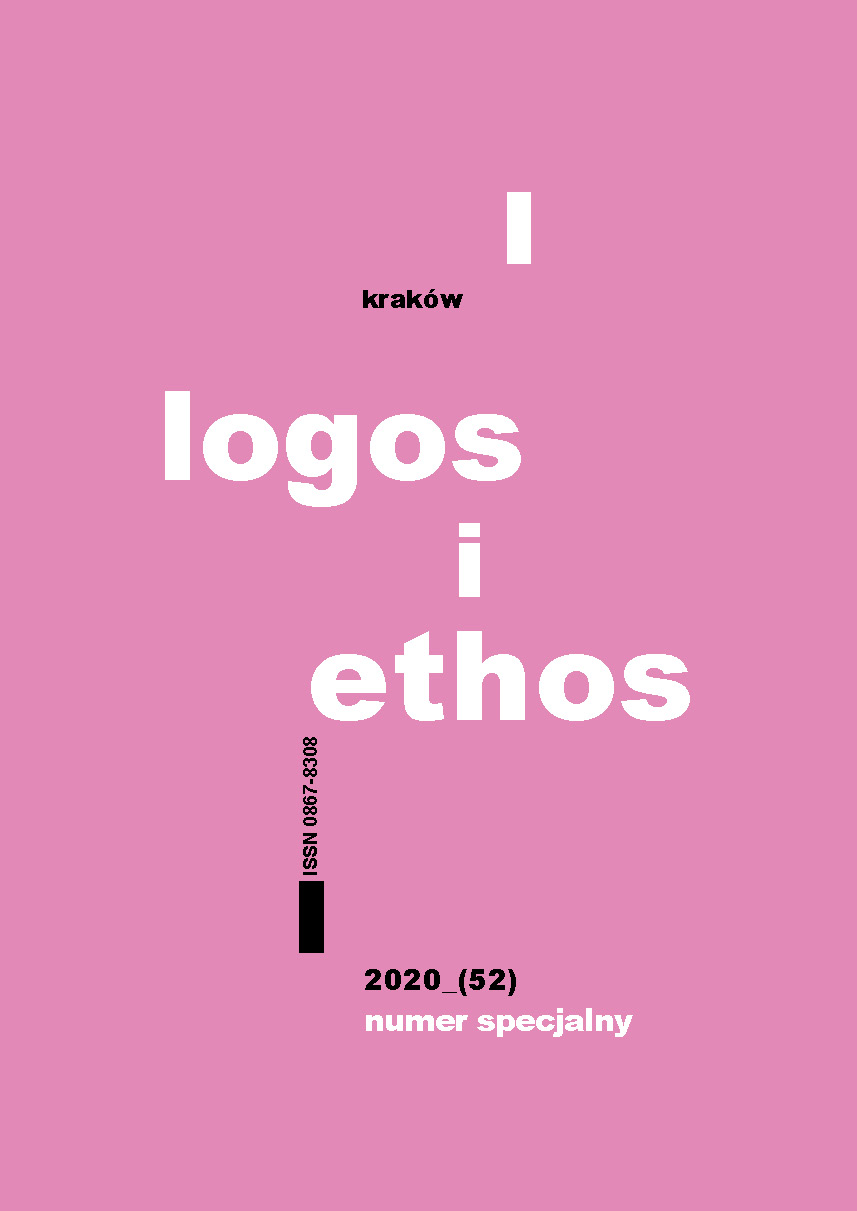Zagadnienie cielesności w ujęciu Emmanuela Lévinasa: rozkosz erotyczna i pieszczota
DOI:
https://doi.org/10.15633/lie.3579Słowa kluczowe:
Lévinas, zmysłowość, erotyka, antropologia, teologia moralnaAbstrakt
Lévinas opisuje zbliżenie i rozkosz erotyczną jako analogiczne do spotkania człowieka objawiającego się w twarzy Innego. To zbliżenie realizujące się w pieszczocie jest rozkoszą. Rozkosz jest przez Lévinasa traktowana jako podstawowy sposób istnienia człowieka, jako pierwotne doznanie siebie samego, wcześniejsze i odrębne od intencjonalności. Ta myśl filozofa uwyraźnia to, jak bardzo wrażenie zmysłowe jest w istocie ludzkie, a przede wszystkim jak specyficznie ludzka jest zmysłowość erotyki, która jest zmysłowością bliskości z innym człowiekiem, oraz to, jak jest odmienna od wrażeń wywołanych przez jakikolwiek sztuczny impuls. Ta różnica dotyczy całej cielesności człowieka. Ciało ludzkie i jego zmysłowość nie są po prostu materią i impulsami. Takie ujęcie erotyki i cielesności pozwala zobaczyć dwa paradygmaty poznania rzeczywistości i dwie antropologie oraz wskazać możliwość odwołania się do cielesnej, zmysłowej antropologii Lévinasa w teologii moralnej w celu pokazania etycznego wymiaru zbliżenia erotycznego.
Bibliografia
Derrida J., Le toucher, Jean-Luc Nancy, Paris 2000.
Lévinas E., Całość i nieskończoność: esej o zewnętrzności, tłum. M. Kowalska, Warszawa 1998.
Lévinas E., Inaczej niż być lub ponad istotą, tłum. P. Mrówczyński, Warszawa 2000.
Lévinas E., Trudna wolność: eseje o judaizmie, tłum. A. Kuryś, Gdynia 1991.
Morajko K., Myśl, która myśli więcej niż myśli? Emmanuel Lévinas, Całość i nieskończoność. Esej o zewnętrzności, „Principia” 1999 nr 24–25, s. 279–288.
Pobrania
Opublikowane
Numer
Dział
Licencja
Autorzy publikujący w czasopiśmie udzielają jego wydawcy zgody o następującej treści:
- Autor zachowuje autorskie prawa majątkowe do utworu, a jednocześnie udziela wydawcy czasopisma zgody na jego pierwszą publikację w wersji drukowanej i wersji online na licencji Creative Commons Uznanie autorstwa 4.0 Międzynarodowe oraz zgody na wykonywanie opracowań, w tym przekładów.
- Autor ma możliwość udzielania zgody niewyłącznej na opublikowanie utworu w wersji, która ukazała się w czasopiśmie (np. zamieszczenia go w repozytorium instytucjonalnym lub opublikowania w książce), wraz z informacją o jego pierwszej publikacji w czasopiśmie.
- Autor może umieścić swój utwór online (np. w repozytorium instytucjonalnym lub na swojej stronie internetowej) jeszcze przed zgłoszeniem utworu do czasopisma.

